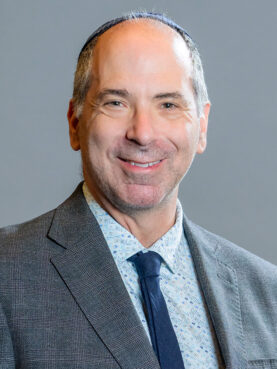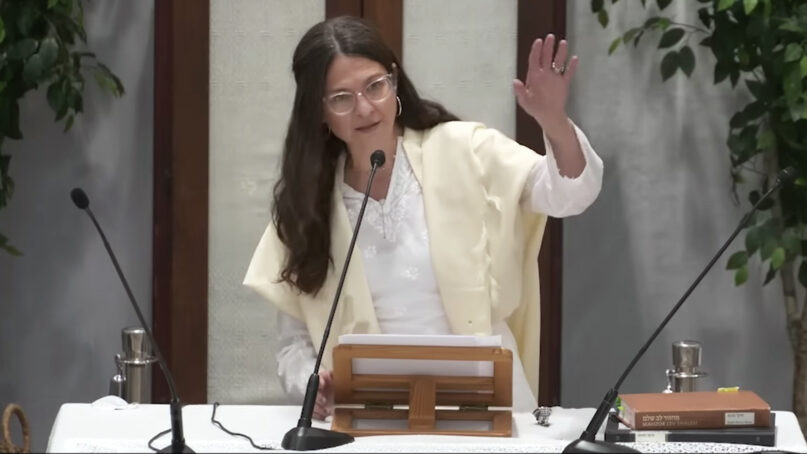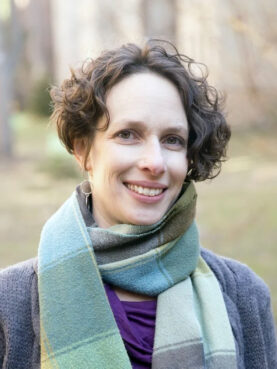(RNS) — Robert Nosanchuk, senior rabbi at Mishkan Or in Beachwood, Ohio, thinks of sermons at the High Holidays like snapshots of their times: “They capture a moment in time of relationship between … the congregants, the clergy and the world at large,” said Nosanchuk, who leads the Cleveland area’s oldest Reform congregation.
The sermons, he added, put the ancient Jewish teachings in perspective, showing “how they might operate in a world that is trembling.”
Starting at sunset on Monday (Sept. 22) with Rosh Hashana, the Jewish New Year, synagogues and other Jewish communities entered their High Holidays, one of the busiest times of their calendar. The 10-day observance ends with Yom Kippur, the Jewish Day of Atonement, considered the holiest day of the year for Jews. Yom Kippur starts this year at sundown Oct. 1.
Later in October, Jewish communities will observe Sukkot (Oct. 6–13), a seven-day festival celebrating the harvest season, followed by Simchat Torah (starting at sunset Oct. 14), marking the end of the annual cycle of Torah readings.
During the High Holidays, synagogues typically see attendance soar as congregants reflect on the past year and seek guidance for the year ahead. For the occasion, rabbis across the country craft sermons befitting the crowds and, often, tackling issues of particular concern to Jewish Americans. This year, amid debates about threats to freedom of speech and polarization, Jews are bracing for complex discussions on rising antisemitism, Trump administration policies and the devastation caused by the Israel-Hamas war in Gaza.
RELATED: For many US Jews, High Holy Days will be a mix of anxiety and determination

Rabbi Robert Nosanchuk. (Photo courtesy of Mishkan Or)
For Yom Kippur, Nosanchuk said he plans to discuss what Judaism teaches about resistance and the sacred obligation to “preach truth to power,” a core Jewish value. His sermon, inspired by what he sees as the weakening of American democracy, will draw on examples of resistance movements across the world.
Not one to worry about making congregants uncomfortable, Nosanchuk said that higher attendance, including those tuning in online, nonetheless calls for more caution when speaking from the bimah, as the pulpit in a synagogue is called. It is particularly necessary, he said, when discussing the Oct. 7, 2023, Hamas attacks on Israel in a multigenerational congregation.
“The horrid trauma of Oct. 7 in 2023 has caused a range of different responses from American Jews, the largest portion of which has been solidarity with a traumatized Israel and a Jewish world that’s being hit with antisemitism,” he said. “But different generations respond to that differently.”
According to the Pew Research Center, 42% of American Jews aged 18 to 34 found Israel’s military response to the Hamas attack unacceptable, while 35% of American Jews aged 35 to 49 said so, and 27% of American Jews over 65 said so.
Reconciling the varying views on the Israel-Hamas war held by Jewish high schoolers, Jewish college students who witnessed how the war weighed in campus discussions, and Jewish adults is challenging, he said.
RELATED: Rosh Hashana helps us envision a Judaism beyond nationalism
Rabbi Hirshy Minkowicz, director of the Chabad center in North Fulton, Georgia, said High Holidays sermons are a time to reflect on Jewish identity and values. He will preach about the resilience of the Jewish people against antisemitism and criticism of Israel for its military campaign in Gaza.
“Our objective is one thing and one thing only, focusing on continuing to live our Jewish life proudly and boldly and not be fazed by anything that’s going on around us,” said Minkowicz, whose synagogue, part of the Hasidic Chabad-Lubavitch movement, expects as many as 900 people for its Rosh Hashana services.
“For many people, they look around at what’s going on in the world today and all the forces that are stacked up against the Jewish people, whether it’s antisemitism, the unrightful and unjust criticism against Israel, and they are concerned by it. They don’t know what they’re supposed to do about it and how they’re supposed to react,” he said.
At IKAR, a progressive congregation in Los Angeles, Rabbi Sharon Brous said her sermons will address American politics and the war in Gaza because her rabbinical duties include “comfort the afflicted and to afflict the comfortable.”
On Wednesday, the second day of Rosh Hashana, Brous will preach on the “spiritual catastrophe” she believes Jews are facing because of the situation in Israel, Gaza and the West Bank.
Her sermon will begin with a warning to the congregation that she doesn’t want to trigger pain or sow division. Both the trauma and the fear of antisemitic violence have made it difficult for Jewish communities to be morally clear about the situation in Gaza, she said.

FILE – Rabbi Sharon Brous delivers a Yom Kippur sermon at IKAR, a non-denominational Jewish congregation in Los Angeles, Monday, Sept. 25, 2023. (Video screen grab)
“Will some people be aggrieved? Of course they will, and I don’t ever want to hurt anybody,” she told Religion News Service.
“But the alternative is not to speak, and that is a far more dangerous course of action in times as precarious as these,” said Brous, who gave a controversial Yom Kippur sermon days before the Oct. 7 attacks in 2023 warning of Israel’s growing messianic rule.
Brous said her sermon will address how the Israel-Hamas war is “rippling through and throughout the world and the effect that it’s having on the Jewish community and could have on Judaism itself.”
RELATED: Sharon Brous on the power of saying ‘amen’ in a broken world
For Yom Kippur, she will address the challenges American Jews face at home, including the rise of authoritarianism, the end of democracy and the climate crisis.
Rabbi Rachel Goldenberg, who leads Malkhut, a progressive Jewish spiritual community in Queens, New York, said she will announce to her congregation in her Yom Kippur sermon that she will now use the word “genocide” to describe the situation in Gaza.

Rabbi Rachel Goldenberg. (Photo courtesy of Malkhut)
Malkhut, a spiritual home to progressive Zionist and anti-Zionist Jews, has cultivated a space to disagree respectfully, Goldenberg said. Still, writing this sermon, she said, feels both cathartic and anxiety-inducing. “I’m crafting a sermon – God willing, Inshallah – it works — that maintains that space, but also where I can really manifest what I feel, I think, honestly and with integrity,” she said.
For the High Holidays, Malkhut expects around 250 congregants, including approximately 50 who will join online.
The Torah reading for Rosh Hashana, in which Abraham exiles his servant Hagar to the desert after she birthed their child, Ishmael, inspired Goldenberg to preach about the situation faced by immigrant families in the U.S. In the past few months, Goldenberg has accompanied migrants at court hearings in lower Manhattan with other New York clergy members. One couple and their 5-day-old infant, who was separated when one of them was arrested, reminded Goldenberg of Hagar and Ishmael being left to wander in the desert.
Her sermon will highlight how “watching other people do acts of goodness can nourish us and inspire us and help us remember our deepest values, and then move us to action and give us courage.”
As they prepare their sermons, Brous and Goldenberg said the constraints on freedom of speech are at the forefront of their minds.
The recent suspension of ABC late-night show host Jimmy Kimmel, over his comments on the death of conservative activist Charlie Kirk, has had a “chilling” effect, said Brous. (On Monday, ABC announced Kimmel’s show will return to the air.)
“I have never gone into a deep prayer the way that I have this year to really ask God to help guide me in determining what needs to be said,” she said. “We are all in this time, facing different levels of risk for doing our job. … Ultimately, I answer to a higher authority.”







